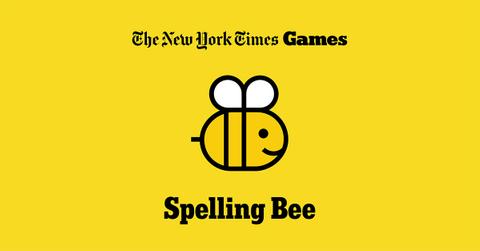NYT Games Spelling Bee Stops Mid-Game for Some Users Who Want to Find More Words
Spelling Bee cuts users who aren't subscribed to NYT Games once they hit Solid.
Jul. 17 2024, Published 11:44 a.m. ET

In addition to being the biggest newspaper in the world, The New York Times has also developed a highly impressive suite of games. Those games include its iconic crossword, but also Sudoku, Wordle, and Spelling Bee, which may be their most impressive original creation.
If you've played Spelling Bee either on The New York Times website or in their Gaming app, you may have noticed that, unlike Wordle, the game stops right in the middle, at least for some people. Those users want to understand why Spelling Bee stops them from finding more words.

Why does Spelling Bee stop?
Whereas Wordle and some of the other games available through The New York Times are entirely free, that is not the case for Spelling Bee. Instead, users are allowed to find a certain number of words for free (depending on the puzzle and how many points those words are worth) and then the game cuts you off if you aren't subscribed to The New York Times games subscription.
The free version stops when you hit a status in the game known as "Solid." After that, you're prompted to subscribe to NYT Games, which costs $5.99 a month and gives you full access to Spelling Bee and the Crossword.
Given the relative affordability of that subscription, many users have chosen to pay it to get access to the full suite of games that are owned by The New York Times.
There are some games you can play for free, however, and those games are enough for some users who find the subscription too rich for their blood.
Unfortunately, you won't be able to finish Spelling Bee and hit Queen Bee unless you pay, but you can definitely do the Wordle every day either way.
The New York Times has bet big on Games.
While it may seem like a relatively small part of what The New York Times does, Games are actually a crucial revenue stream for the organization. The thinking is, at least in part, that people will bundle together the paper's journalism with their gaming subscription, and wind up reading about the news after entering the company's universe of customers through the games they have.
“A lot of people are actually buying the bundle through our Games product,” Times chief product officer Alex Hardiman told Vanity Fair. “That’s a pretty big shift in terms of where we were a year and a half ago, two years ago. And that is what is so powerful about games as a funnel.”
So, while it may seem strange to you that they want you to pay for Spelling Bee, The New York Times is actually being very strategic about what it allows to be free and what it doesn't. It's already the biggest paper in the world, and while some have joked that they are really a gaming company that does news on the site, that's certainly more true than it was even five years ago.